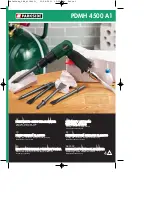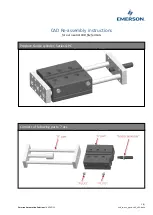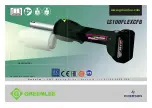
10
Battery Safety
!
Safety Warnings for Battery
• Lithium-ion batteries are subject to a natural ageing process. The battery pack must
be replaced at the latest when its capacity falls to just 80% of its capacity when new.
Weakened cells in an aged battery pack are no longer capable of meeting the high
power requirements and therefore pose a safety risk.
• Do not throw battery packs into an open fire. There is a risk of explosion!
• Do not ignite the battery pack or expose it to fire.
• Do not exhaustively discharge batteries. Exhaustive discharge will damage the battery
cells. The most common cause of exhaustive discharge is lengthy storage or non-use
of partly discharged batteries. Stop working as soon as the performance of the battery
falls noticeably or the electronic protection system triggers. Place the battery pack in
storage only after it has been fully charged.
• Protect batteries and the tool from overloads. Overloads will quickly result in over-
heating and cell damage inside the battery housing without this overheating actually
being apparent externally.• Avoid damage and shocks. Replace batteries which have
been dropped from a height of more than one metre or which have been exposed to
violent shocks without delay, even if the housing of the battery pack appears to be
undamaged. The battery cells inside the battery may have suffered serious damage. In
this respect, please also read the waste disposal information.
• If the battery pack suffers overloading and overheating, the integrated protective cut-
off will switch off the equipment for safety reasons.
Important. Do not press the ON/OFF switch any more if the protective cut-off has
actuated. This may damage the battery pack.
• Use only original battery packs. The use of other batteries may result in injuries,
explosion and a fire risk.
Flexisharp instructions.indd 10
11/07/2018 13:24






































